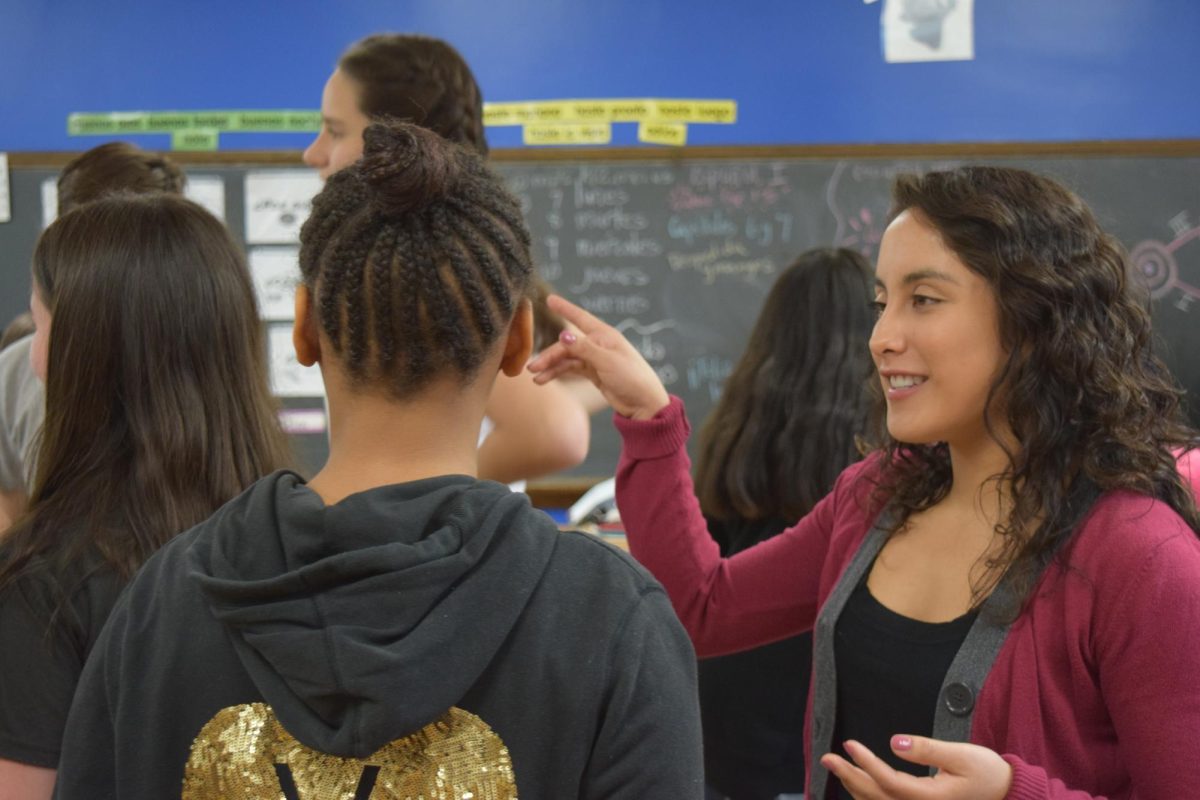Future and current Minnesota educators are worried about President-elect Donald Trump’s plan to potentially end tenure for K-12 teachers.
Trump’s Republican Party platform for his upcoming term, known as “Agenda47,” will support schools that end teacher tenure and adopt merit pay, which rewards teachers based on their performance evaluations.
“Republicans will support schools that focus on Excellence and Parental Rights,” Trump’s agenda said. “We will support ending Teacher Tenure, adopting Merit pay, and allowing various publicly supported Educational models.”
Jehanne Beaton, coordinator for the University of Minnesota’s undergraduate DirecTrack to Teaching program, said tenure allows teachers the security to innovate and improve their curriculum without fear of reprisal from administrators, parents or colleagues — especially important for new teachers beginning their careers.
“We have historical precedent that says without tenure, teachers have much less academic freedom and that’s across the board,” Beaton said. “I would also say that getting rid of tenure is worse than making sure a teacher who’s not doing their job gets due process.”
What is tenure? What does it do for teachers?
K-12 teachers in public schools receive tenure during their fourth year working at a school, according to Beaton, essentially making it more difficult to fire a teacher by requiring reasonable cause in firing a tenured teacher. Before tenure was widely established in U.S. states, teachers could be fired for being gay, pregnant or supposedly communist, according to Beaton.
Beaton said there are negatives to the system of tenure. She’s seen teachers “phone it in” once they’ve received tenure and stop doing their jobs properly, which ultimately hurts students’ learning experiences.
Ryan Chock, a fourth-year University student in the DirecTrack to Teaching program, said he worries ending tenure would repel people from entering the profession and detract from students’ education.
“Having teachers be, I guess, at the beck and call and job security on a whim, they might be afraid to, I mean, educate, do their job,” Chock said.
Moms for Liberty, a political organization that advocates against curriculum mentioning LGBTQ+ rights, homophobia, racism and critical race theory, has chapters in six Minnesota counties. The Southern Poverty Law Center designated the organization as an extremist group in 2023.
A Minnetonka middle school teacher was suspended in 2021 after receiving backlash from parents for highlighting transgender activist Marsha P. Johnson in a “Person of the Day” class activity. The teacher ultimately left the district.
Beaton said she fears ending tenure would mean fewer LGBTQ+ individuals and people of color would become teachers, a problem Minnesota already faces in its teaching population.
Around 6% of Minnesota teachers are people of color or Indigenous, according to a 2023 report from the Minnesota Professional Educator Licensing and Standards Board.
Lilian Saunders, a third-year University student pursuing a degree in English and a career in teaching, said supporting teachers with tenure is especially important in a profession where burnout and turnover rates are already high.
What about the Department of Education?
Current and future Minnesota educators are also concerned with possible goals to dismantle the U.S. Department of Education which funds special education and English language learning programs and regulates financial aid programs like the FAFSA and Pell Grants.
“One thing I’ll be doing very early in the administration is closing up the Department of Education in Washington, D.C., and sending all education and education work it needs back to the states,” Trump said in a 2023 video.
Chock, who’s pursuing teaching as a second career, said the potential threat to tenure and the end of the Department of Education gave him doubts about his future career.
“I’m thoroughly invested, at this point, in my education, but I would be lying if I didn’t say it gave me pause to just think and reflect about what does that look like for me,” Chock said. “How is that going to affect my career?”
Chock added that in his current job as a bartender, he’s trained multiple former teachers who left the profession during the pandemic, a strange experience for him as he plans to become a teacher.
Saunders, whose parents are both teachers, said she still wants to be a teacher but is thinking about how her career could change under a new presidential administration.
“The culture around teaching has changed so much, especially due to COVID, like the way teachers are treated and, as someone entering the profession with this administration, it is nerve-wracking because I just feel like the respect that teachers get is so different now, and I can see that continuously going down with this administration,” Saunders said. “But also, I am a firm believer that the people within schools can impact changes, and so if you get into a good school with good support, you’re still going to be able to do a great deal of good.”
Beaton said she’s worried the potential end of tenure and the Department of Education will repel even more people from becoming teachers in the future.
“We’ve seen a huge drop in people interested in teaching for a decade, and we were just beginning to see an incline. We’re just beginning to see that turn because we’ve had four years of a president that actually supports public education and so, do I worry for the profession?” Beaton said. “Yeah, yeah I do.”














